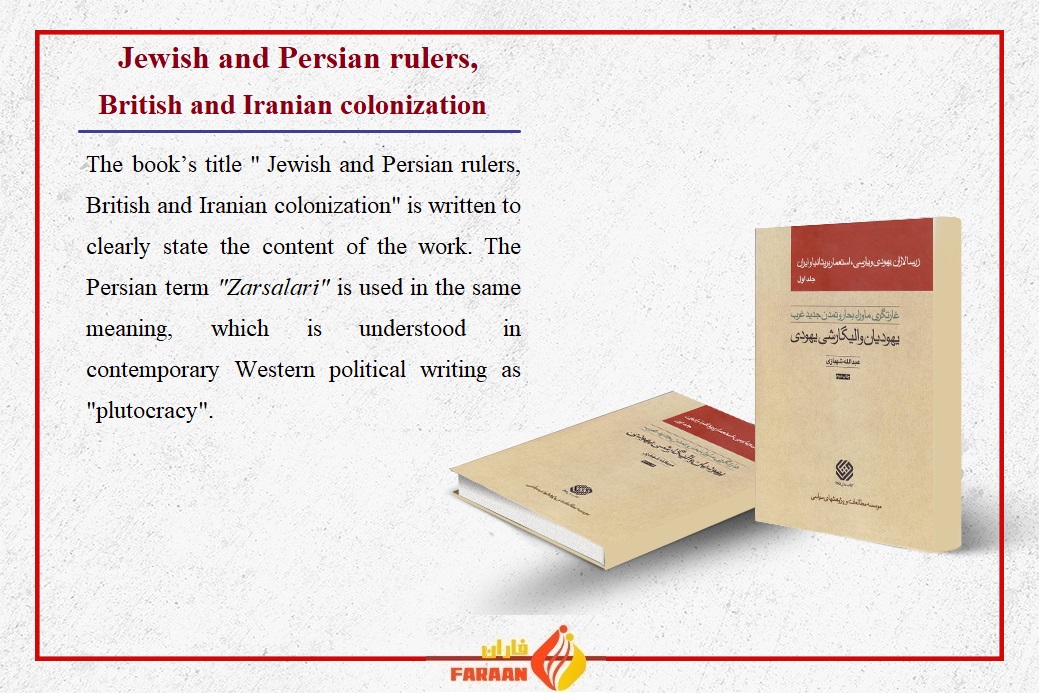The book’s title ” Jewish and Persian rulers, British and Iranian colonization” is written to clearly state the content of the work. The Persian term “Zarsalari” is used in the same meaning, which is understood in contemporary Western political writing as “plutocracy”.
Faraan: In book content, this complex phenomenon and its long course of evolution and evolution have been discussed in detail. In a nutshell, based on the words and legacy of the Crusades in the sixteenth to nineteenth centuries, a union of partner families involved in overseas looting in Western and Central Europe was formed. It was this same collection that held the affairs of the British East India Company and founded the largest colonial empire in contemporary history in the 19th century.
The book “Jewish and Persian rulers, British and Iranian colonization” is the outcome of a long effort that is now available to dear readers.
The book’s title ” Jewish and Persian rulers, British and Iranian colonization” is written to clearly state the content of the work. The Persian term “Zarsalari” is used in the same meaning, which is understood in contemporary Western political writing as “plutocracy”. “Plutocracy” comes from the Greek word “plutos” meaning “wealth” and refers to the direct or indirect domination of a wealthy minority, the ruling elite, over the entire society.
In this research, plutocrat has found today’s world with a dynastic structure and therefore, it is also referred to as plutocrat oligarchy. In the use of the word oligarchy (meaning dynastic elitism), not its Persian equivalent, the intent of Persian equivalents does not represent all the peculiarities and dimensions of that phenomenon that is known by this concept. Thus, the combination of these two words creates a meaning which is surely the author’s intention.
During the compilation of the present research, the question arose for the author as to what became the focal point of the accumulated and legendary liquidity of the British East India Company after its official dissolution in 1857. What happened to this huge global complex in the second half of the nineteenth and twentieth centuries, and what are their survivors and heirs doing in the world today?
It was in search of an answer to this question that the author became acquainted with a series of huge economic complexes that form a vast and intertwined network in today’s world. And he found that the control of this allied and universal group is mainly with the descendants of the same families that were considered colonial oligarchs of the Western world in the nineteenth century and they directly or indirectly inherited the traditions and heritage of the Crusades and overseas looting of previous centuries.










